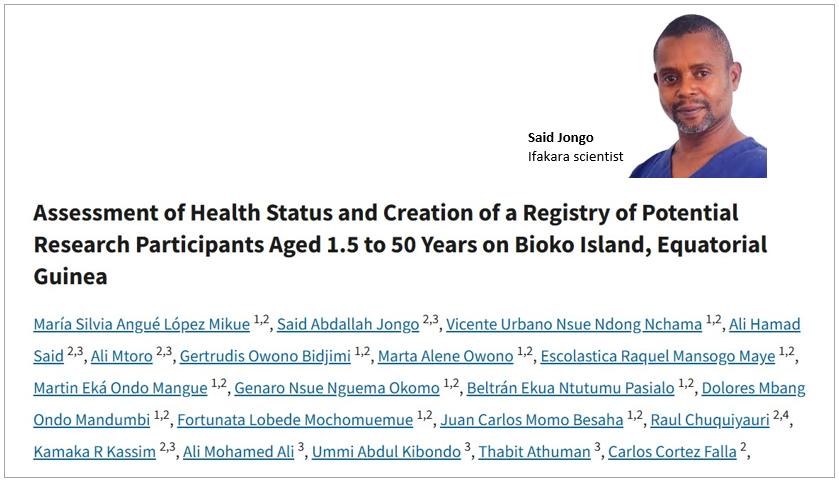
MALARIA: Scientists lay foundation for landmark vaccine trials

Despite years of progress in reducing malaria prevalence in Bioko Island, Equatorial Guinea, gains have stalled in recent years. While early interventions under the Bioko Island Malaria Control Project sharply cut malaria rates, transmission has persisted, prompting the need for new tools—chief among them, a highly effective malaria vaccine.
In a new study published in The American Journal of Tropical Medicine and Hygiene, researchers from the Ministry of Health and Social Welfare of Equatorial Guinea, MCD Global Health, the Ifakara Health Institute, Sanaria Inc., and partner institutions describe the Equatorial Guinea Pilot Study for Recruitment, Screening and Participant Registry (EGRESPAR).
This effort is aimed to assess community health status and create a registry of healthy volunteers for a planned phase 3 trial of Sanaria’s Plasmodium falciparum sporozoite (PfSPZ) Vaccine, intended to support malaria elimination on the island.
Recruitment and health assessment
Households in 12 communities with malaria prevalence ≥15% were randomly selected for door-to-door visits. Of the 6,493 residents expressing interest, 2,021 underwent detailed screening in two stages: first at local recruitment venues, then at the central clinical research center. Screening assessed medical history, vital signs, anthropometry, ECGs, and lab tests for malaria, Loa loa, HIV, hepatitis B, and hepatitis C. Ultimately, 1,378 individuals—spanning children, adolescents, and adults—were deemed eligible and entered into the registry.
Understanding the health landscape
Findings revealed that even among people who considered themselves healthy, 13.6% had malaria, 4.8% had hepatitis B, 2.1% had HIV, and 1.8% carried Loa loa. Adults were twice as likely as children to have chronic medical conditions such as obesity, hypertension, or diabetes—factors that could affect vaccine safety and trial outcomes.
The role of innovation and readiness
The EGRESPAR demonstrated the feasibility of mobilizing and screening large numbers for vaccine trials, while highlighting the importance of community sensitization, logistical planning, and robust health screening. These insights are critical for ensuring safety, maintaining high-quality data, and achieving reliable trial results.
“Mass vaccination, combined with sustained malaria control, could finally tip the balance toward elimination on Bioko Island,” the authors note, stressing that success will depend not only on vaccine efficacy but also on strong governance, community trust, and continued investment in public health infrastructure.
A flexible, context-specific approach
The study underscores the need for adaptable frameworks that allow malaria-endemic regions to integrate novel tools like PfSPZ vaccines into broader elimination strategies. By pairing rigorous scientific trials with community-driven engagement, the path toward a malaria-free Bioko—and potentially other African settings—becomes more tangible.
Ifakara scientists contribute to the study
Said Abdallah Jongo from Ifakara Health Institute contributed to the study that was led by María Silvia Angüe López Mikue of the Ministry of Health and Social Welfare in Equatorial Guinea and Thomas Richie from Sanara Inc., with contributions from a large multi-institutional team spanning Equatorial Guinea, Switzerland, the United States, and Peru.
Other Ifakara scientists from Ifakara who contributed include, Ali Hamad Said, Ali Mtoro, Kamaka R. Kassim, Ummi Abdul Kibondo, Maxmillian Mpina, and Salim Abdulla—each playing an essential role in study design, field operations, data analysis, and interpretation.
Read the full publication here
